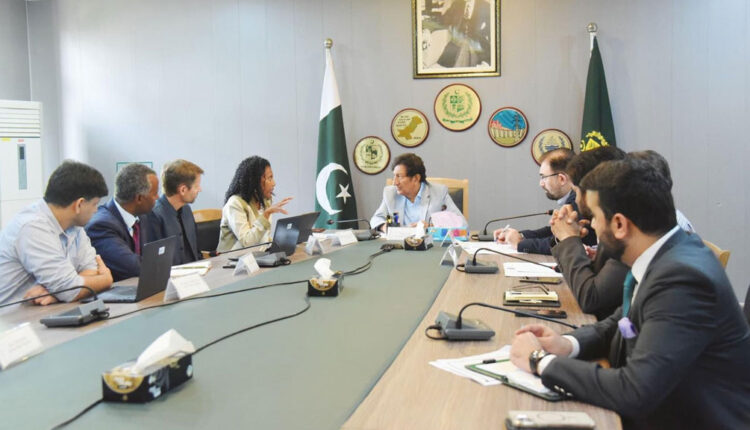Pakistan, World Bank Discuss Boosting Water Security and Flood Resilience
Mr. Wattoo welcomed the delegation and acknowledged the World Bank’s longstanding partnership in Pakistan’s water sector.
Islamabad— The Honourable Federal Minister for Water Resources, Mr. Muhammad Mueen Wattoo, held a high-level meeting today with a World Bank delegation to discuss strengthening water security, improving flood resilience, and exploring future collaboration opportunities.
The World Bank delegation was led by Ms. Meskerem Brhane, Regional Director for ‘Planet’ in the Middle East, North Africa, Afghanistan, and Pakistan Region. She was accompanied by senior water specialists, including Mr. Bekele Debele Negewo, Mr. Francois Onimus, and Mr. Basharat Saeed. Senior officials from the Ministry of Water Resources (MoWR) also attended the meeting.
Mr. Wattoo welcomed the delegation and acknowledged the World Bank’s longstanding partnership in Pakistan’s water sector. He highlighted urgent priorities, including the increasing frequency of floods and the growing stress on water resources.
Ms. Brhane expressed condolences over the recent loss of life and property caused by severe flooding in Khyber Pakhtunkhwa and Punjab. She underscored the need for integrated water resources management and improved land use planning. She also emphasized the importance of strong coordination between federal and provincial governments — a leadership role well-suited for the Ministry of Water Resources.
During the meeting, Ms. Brhane noted that building climate resilience is a core objective under the World Bank’s upcoming Pakistan Country Partnership Framework (CPF) 2026–2035, with flood resilience identified as a key area of focus. The Ministry shared details of the National Flood Protection Plan IV, which includes both technical and policy-based measures that align closely with the CPF’s goals.
Discussions also addressed the critical need to boost agricultural water productivity and water use efficiency. The Ministry reiterated its commitment to reducing conveyance losses by 33% by 2030, as outlined in the National Water Policy.
Read more: Flood-hit communities to benefit from govt power bill relief
Both parties agreed to continue engagement through follow-up meetings focused on identifying infrastructure, governance, and management solutions to enhance water efficiency, productivity, and service delivery.
Finally, the two sides stressed the importance of investing in accurate water measurement and project monitoring systems. They supported the development of a national, publicly accessible, data-driven platform to track progress, identify gaps, and improve decision-making across the water sector.






Comments are closed, but trackbacks and pingbacks are open.